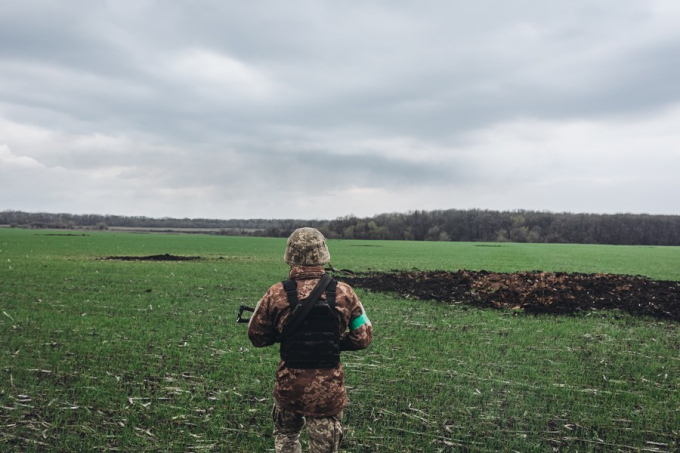November 25, 2025 | 02:00 GMT +7
November 25, 2025 | 02:00 GMT +7
Hotline: 0913.378.918
November 25, 2025 | 02:00 GMT +7
Hotline: 0913.378.918

A Ukrainian soldier walks in a field in Donbass on April 12, 2022. Photo: Xinhua
Maximo Torero told Xinhua in a recent online interview that this year, global access to food is hampered by the rocketing prices.
"In March, we had the biggest peak in the FAO's food price index," he said, adding that although the monthly index declined slightly in April and May, cereal prices continue to increase.
The main reason behind the price increase, Torero said, is that Russia and Ukraine are key exporters of cereals, including maize and wheat. The FAO said that the two countries produced around 30 percent of the global wheat supply in 2021.
As a result of the surge in prices, "consumers and especially vulnerable countries are facing significant challenges to be able to procure the amount of food that they need today," he said.
Access to fertilizers is another major concern, and this is especially true for the 2022-2023 season, Torero said.
Russia is the world's top exporter of nitrogenous fertilizers, the second leading supplier of potassium fertilizers, and the third of phosphorous fertilizers. Now "fertilizers are not flowing at the velocity they are supposed to flow," he said.
"We are really concerned that in 2023, if this is not resolved, we could have a problem with food availability and access," he noted.
The Russia-Ukraine conflict that started in late February "made it uncertain whether Ukraine will be able to harvest its winter crops and plant the spring crops," he said.
The FAO's recently released outlook for winter cereal crops in Ukraine is also bleak. Yields are expected to fall 10 percent below average levels due to the delayed or missed fertilizer application and the country's inability to control pests and diseases.
Torero noted that Ukraine also faces a challenge in storage capacity as its ability to export via the Black Sea ports is completely stymied. In the past, the country exported over 90 percent of its agricultural commodities.
He recalled that several million tonnes of grain from the 2021 harvest remain stuck in Ukraine. "If farmers are not able to sell their crops, they will lack the financial resources needed to start the next growing season, and this will seriously affect the 2023 harvest," he said.
"For now, it remains crucial to facilitate exports from Ukraine to free up the country's storage capacity and help farmers and their families earn income. This will also help increase the availability of wheat globally, and reduce the pressure on prices," he said.
The FAO has tabled a series of policy proposals to cushion the impact of the conflict on global food security, Torero said.
The first one is a global Food Import Financing Facility (FIFF), which would help countries avoid food shortages caused by the increase in their food import bills.
The second proposed tool is the Food Insecurity Experience Scale (FIES), which is designed to measure the individual food insecurity of households in countries that are facing significant challenges.
The other proposals aim to increase the efficiency of the use of fertilizers and reduce food loss and waste.
In the medium and long run, Torero said the emphasis should be on "how we can ensure that the most vulnerable countries can increase their resilience."
(Chinadaily)

(VAN) Brazil's COP30 presidency pushed through a compromise climate deal on Saturday that would boost finance for poor nations coping with global warming but that omitted any mention of the fossil fuels driving it.

(VAN) Poultry farmers in the UK have been warned that they could face one of the worst winters yet for bird flu.

(VAN) Prices of main-crop paddy have risen sharply, with jasmine rice hitting 16,100 baht per tonne — the highest level in years.

(VAN) In Brazil, FAO unveiled a series of reports and initiatives showing how sustainable agrifood systems are a solution to the climate crisis.

(VAN) With names like neodymium and dysprosium, rare-earth elements sound exotic — and their perceived scarcity has only added to the mystique.

(VAN) In a new study published in Trends in Biotechnology, researchers used a gene-editing technology called CRISPR to increase a fungus's production efficiency and cut its production-related environmental impact by as much as 61%- all without adding any foreign DNA.

(VAN) A top official in Beijing’s Cop delegation says China is committed to clean energy – but US’s absence is a problem.